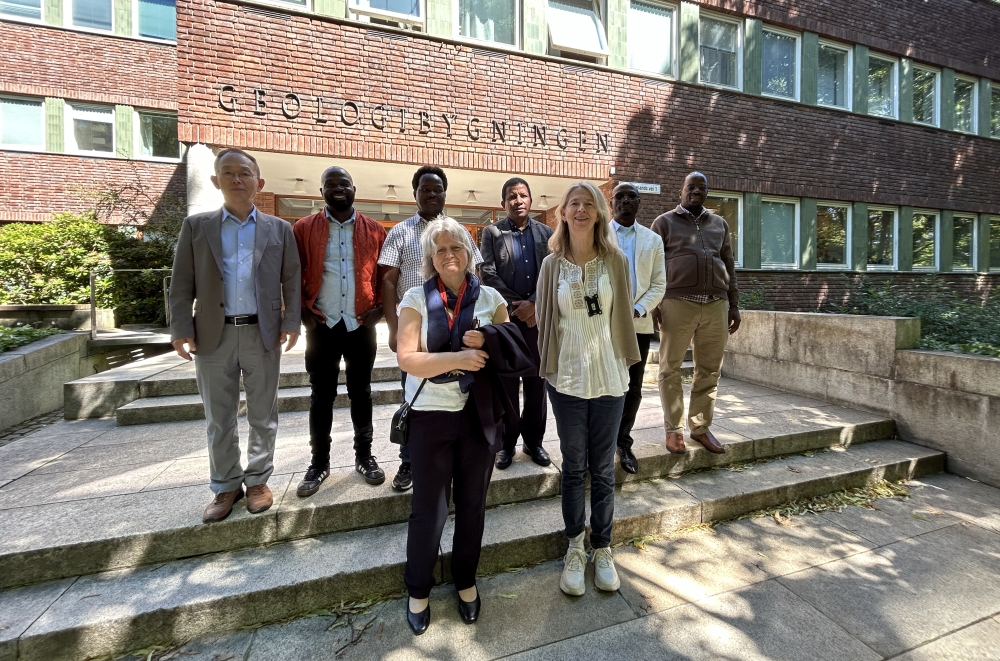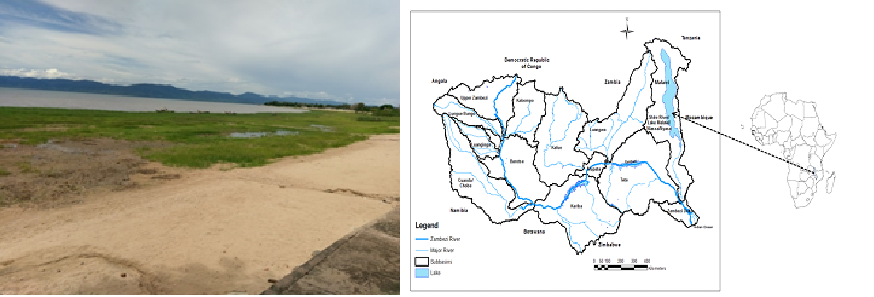About the project
The Zambezi River Basin (ZRB) in southern Africa is a rapidly developing hotspot ecosystem, facing increased risk of water shortages due to effects of climate change and increased population. Understanding how changes in climate and local anthropogenic pressure (e.g. changes in land-use or -management), influence hydro- and biogeochemical processes governing ground- and surface water resources in the ZRB is therefore key to achieving sustainable management of the ecosystem.
However, lack of sustainable management of natural resources and ecosystem services due to low human and institutional capacity, and therefore paucity of scientific information, threatens the current and future status of the ZRB. which otherwise threatens the current and future status of the ZRB, and well-being of the people in the region. The governments of Tanzania and Malawi have prioritized policies and programmes that focus on sustainable natural resources management and agricultural production. The policies and strategies recognize the challenges of climate change and other stressors on these sectors.
The proposed project will generate scientific knowledge and understanding of the state of environment and the expected impacts of climate change and local anthropogenic activities on Hydro-biogeochemical processes governing the amount and quality of water resources in fragile ecosystems and the associated socio-economic consequences in Malawi and Tanzania. The project is designed to address capacity shortfalls using a blend of science and social sciences to understand the ZRB ecosystem, under SDGs 4, 5, 13, 14, 15 and 17. The capacity built will be key towards understanding the state of environment, climate change/variability impacts and human activities on hydro biogeochemical processes and water resources, thus the associated socio-economic consequences, in the ZRB region in Malawi and Tanzania (Lake Malawi Basin).
Sustainable development goals (SDGs) adressed in this project
The project will have a strong human and infrastructural capacity building component for strengthening environmental literacy by training of MSc, PhD and Post-doctoral candidates, policy, management and decision makers and dissemination to local communities. This will be achieved through knowledge exchange amongst the institutions involved, development of teaching and research infrastructure, workshops, short courses and methodology clinics in the participating universities in southern Africa. Mentorship of early career researchers (ECRs) and gender mainstreaming will be critical, targeting at least 50% of female students and researchers in a predominantly male dominated field of science.
Our research and engagements are oriented towards the key actors capable of driving such change, and those who exert influence upon them. Stakeholders’ engagement is at the core at each stage of project implementation.

Objectives
The project is organized around the understanding, improvement and better management of fragile ecosystems on one hand and capacity building on the other. Therefore, the overall goal is to strengthen research capacity and capabilities in institutions in Malawi and Tanzania to carry out impactful research that leads to positive policy/practice change for sustainable management of fragile ecosystems, vulnerable to climate change and local anthropogenic activities and to ensure that this capacity is propagated even after the project.
To meet this goal, we have developed the following specific objectives:
- To strengthen research technical and management skills for sustained and propagated research capacity within partner institutions after the end of the project
- To develop and implement north-south-south and south-south collaborative research and education programmes that advance knowledge and identify solutions to threats of security of water resources and ecosystem services in partner countries.
- To produce a cadre of early career researchers (ECRs) that are capable of leading and shaping the direction of future research in this field.
- To ensure impactful research that influences policy/practice through engagement with stakeholders and policy makers at regional, national and local levels.
- To generate scientific knowledge of the state of environment and the expected impacts of climate change and local anthropogenic activities on hydro-biogeochemical processes governing the amount and quality of water resources in fragile ecosystems and the associated socio-economic consequences in Malawi and Tanzania.
The five target groups defined for our work
Financing
The full title of the project is 'Climate change and ecosystems management in Malawi and Tanzania'. The project is a part of NORHED II which is the Norwegian Programme for Capacity Development in Higher Education and Research for Development.
The project number at NORHED is #63826. The project is financed by The Norwegian Agency for Development Cooperation (Norad).
The project started up in 2021 and have a duration to 2026.
Cooperation
The NORHED II PROJECT – Climate change and ecosystems management in Malawi and Tanzania, is an international research collaboration involving researchers from universities and partners in Norway and Africa. The research work is led by two coordinators.
See participants and people in the project
These are the coordinators and partners:
Coordinator in the North (Norway):
- University of Oslo, Department of Geosciences: Professor Chong-Yu Xu
Coordinator in the South (Tanzania and Malawi, Africa):
- University of Malawi, Faculty of Science: Professor Cosmo Ngongondo
Partners in the South (Tanzania and Malawi, Africa):
- University of Dar es Salaam, Institute of Resource Assessment: Dr. Joel Nobert
- Mzuzu University, Research and Development Directorate: Professor Wales Singini
